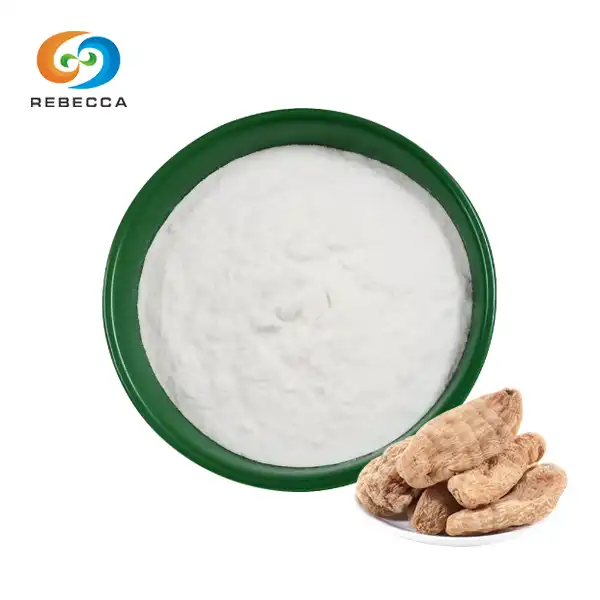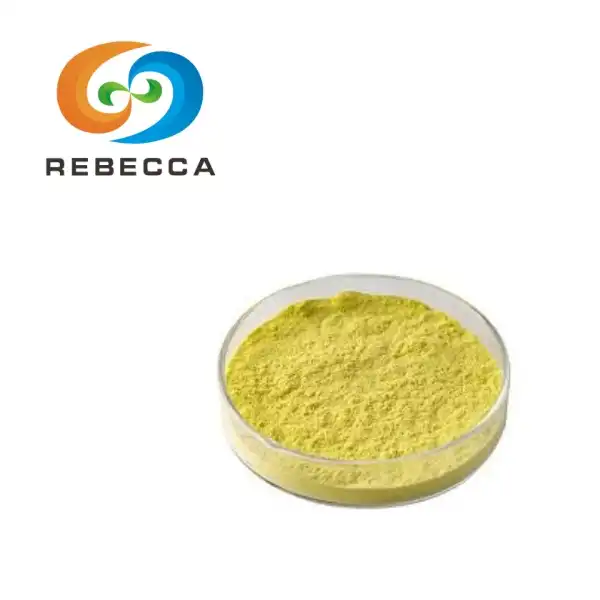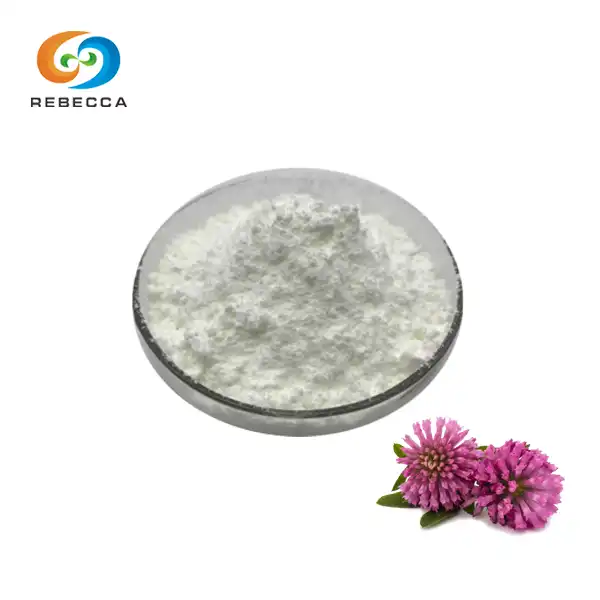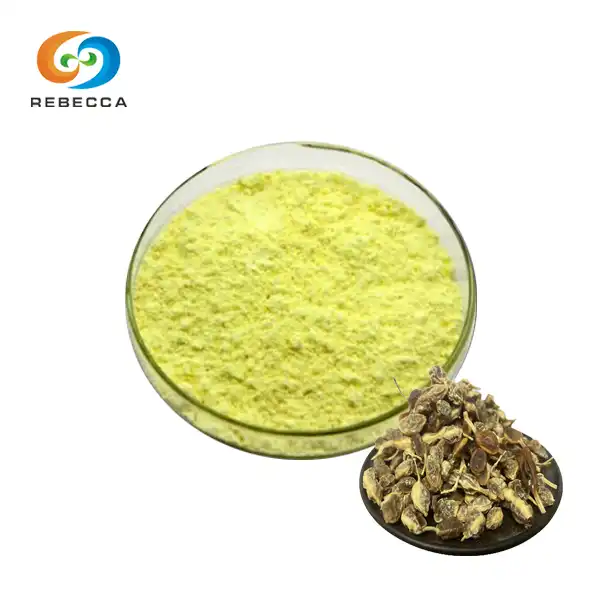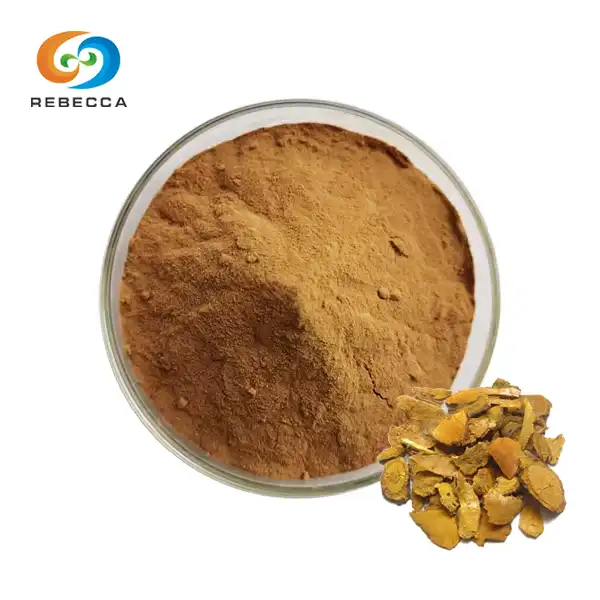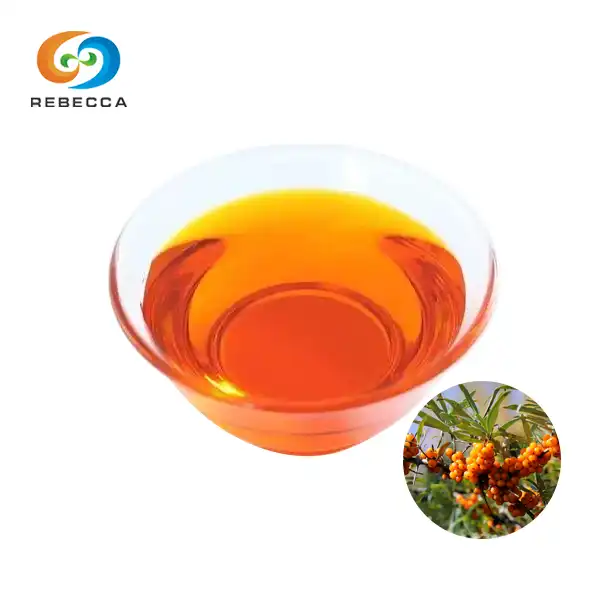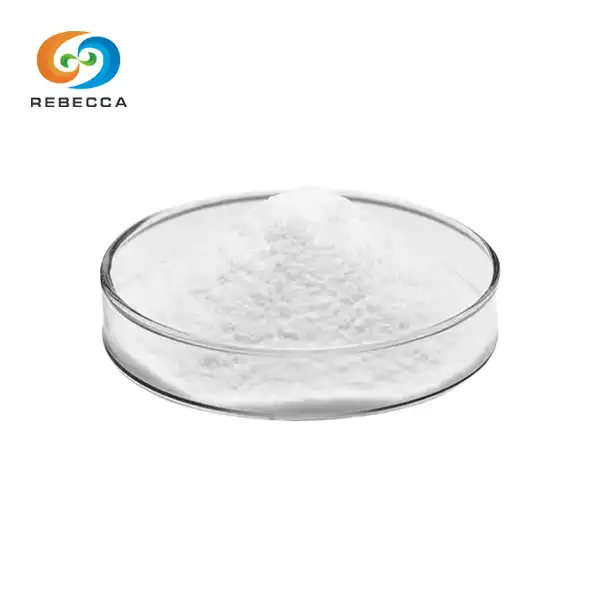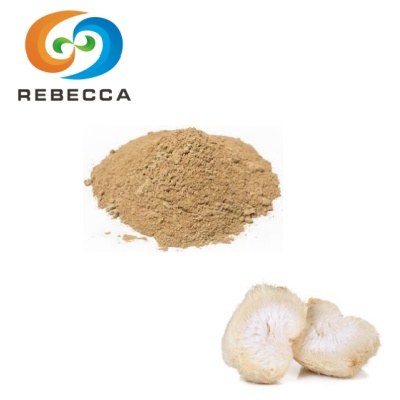How much curcumin powder per day?
Curcumin, the bioactive compound found in turmeric, has gained significant attention in recent years for its potential health benefits, ranging from anti-inflammatory properties to antioxidant effects. As interest in natural supplements grows, many individuals wonder about the appropriate daily dosage of curcumin powder, especially when considering its form as curcumin extract powder. This article aims to provide a detailed overview of recommended dosages, factors influencing bioavailability, and the differences between dietary intake and supplemental use, helping you make informed decisions about incorporating this powerful compound into your wellness routine.
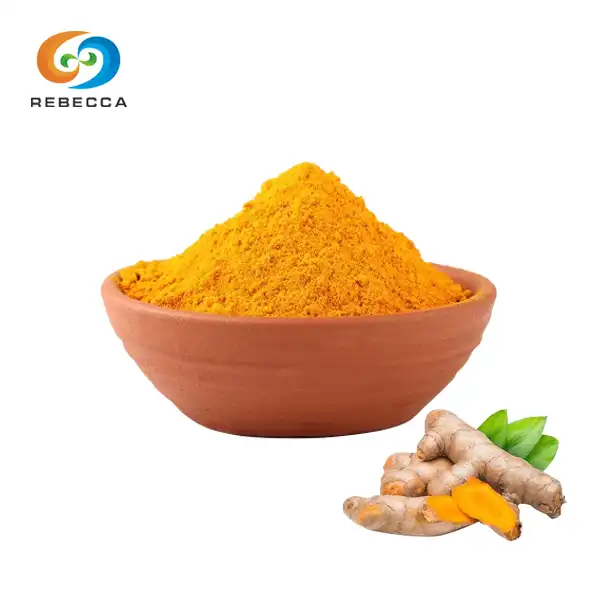
Curcumin Extract Powder
【English name】: Curcumin
【Latin Name】: Curcuma longa L.
【CAS No.】: 458-37-7
【Molecular Formula】: C21H20O6
【Active ingredients】: Curcumin, demethoxycurcumin, bisdemethoxycurcumin.
【Specification】: 10%~ 95% CP/EP/USP
【Use Part】 : Subterranean rhizome
【Appearance】: Orange yellow powder
【Mesh size】:80 Mesh
【Test Method】: HPLC
Standard Supplement Doses
The optimal daily dosage of curcumin extract powder depends on several factors, including your health goals, individual tolerance, and the formulation of the supplement. For general health maintenance, such as supporting the body's natural inflammatory response and enhancing antioxidant activity, most experts recommend starting with a dose between 500 and 2,000 milligrams per day. This range is often divided into two to three servings throughout the day, as curcumin's absorption can be improved when taken with meals, particularly those containing healthy fats.
Clinical studies exploring curcumin's therapeutic potential have used higher doses, sometimes ranging from 4,000 to 8,000 milligrams per day, but these are typically short-term and conducted under medical supervision. Such high doses are often reserved for specific conditions, such as managing chronic inflammation or supporting cognitive health, and must be approached with caution due to potential gastrointestinal side effects in sensitive individuals. Symptoms like nausea, diarrhea, or stomach discomfort may occur at higher doses, emphasizing the importance of starting low and gradually increasing intake while monitoring your body's response.
It's also crucial to consider the quality and standardization of the curcumin extract powder you're using. Reputable supplements should specify the concentration of curcuminoids, the active compounds, including curcumin, demethoxycurcumin, and bisdemethoxycurcumin, which are responsible for the majority of curcumin's benefits. Look for products that undergo third-party testing to ensure purity and potency, as this directly impacts both safety and efficacy.
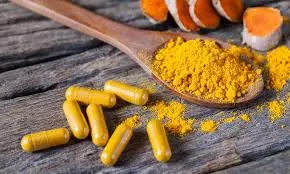
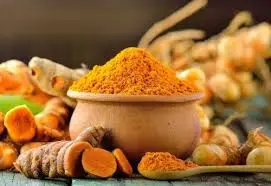
Bioavailability Considerations
One of the key challenges with curcumin is its low natural bioavailability, meaning the body absorbs and utilizes only a small fraction of it when taken alone. This is where formulation plays a critical role in optimizing its effects. Curcumin extract powder products often incorporate ingredients like piperine, the active compound in black pepper, which has been shown to enhance curcumin absorption by up to 2,000%. A typical dose of piperine in these formulations ranges from 5 to 20 milligrams per day, ensuring that the curcumin is more effectively transported into the bloodstream.
Another strategy to improve bioavailability is combining curcumin with dietary fats, such as olive oil or coconut oil. Fatty substances help dissolve curcumin, a fat-soluble compound, and facilitate its absorption in the digestive tract. Some supplements also use liposomal encapsulation or other delivery technologies to protect curcumin from degradation in the stomach and enhance its stability, further boosting bioavailability. When choosing a supplement, check the label for these absorption-enhancing ingredients or technologies, as they can significantly impact how much curcumin your body actually utilizes.
It's important to note that while these formulations improve bioavailability, they also mean that the effective dose of curcumin may be lower than the raw powder dose. For example, a 500-milligram supplement with piperine may provide similar benefits to a higher dose of unformulated curcumin. Always refer to the product's specific guidelines and consult with a healthcare provider to determine the right dose for your needs, especially if you're using curcumin for targeted health purposes.
Dietary vs. Supplement Use
While turmeric is a common spice in many cuisines, particularly in Indian and Southeast Asian dishes, the amount of curcumin it contains is relatively low. Natural turmeric root typically contains about 3% curcumin by weight, meaning that 1 gram of turmeric provides approximately 30 milligrams of curcumin. To reach therapeutic doses, you would need to consume several grams of turmeric daily, which is not only impractical but also may lead to gastrointestinal discomfort due to the spice's natural compounds.
This is where curcumin extract powder supplements shine. These products are concentrated sources of curcuminoids, allowing you to achieve the higher doses necessary for health benefits without consuming large amounts of turmeric. Supplements are also standardized, ensuring consistent potency and purity, which is difficult to achieve with dietary intake alone. Whether you're using curcumin for general wellness or specific health support, supplements provide a reliable and convenient way to incorporate this compound into your routine.
That said, dietary sources of turmeric still have value as part of a balanced diet. They contribute to overall health through their combination of antioxidants and anti-inflammatory compounds, even if they don't provide therapeutic levels of curcumin. Incorporating turmeric into meals can be a beneficial complement to supplements, but it's important to recognize that supplements are often necessary for achieving the doses studied in clinical research.
Rebecca Curcumin Extract Powder
When selecting a curcumin extract powder supplement, quality and safety should be top priorities. Rebecca Bio-Tech offers a premium curcumin powder derived from the subterranean rhizome of the Curcuma longa plant, ensuring high purity and potency. Our product features:
- Active ingredients: Curcumin, demethoxycurcumin, bisdemethoxycurcumin
- Specification: 10%–95% CP/EP/USP, meeting the highest international standards
- Appearance: Vibrant orange-yellow powder with an 80-mesh size for easy dissolution
- Test method: HPLC (High-Performance Liquid Chromatography) for precise purity analysis
Our curcumin is designed to support your health goals, whether you're looking to enhance antioxidant activity, support joint health, or maintain overall wellness. By choosing a standardized extract, you can trust that you're getting a consistent dose of curcuminoids, and our formulation options allow for flexibility in creating products tailored to specific needs.
For more information about Rebecca Bio-Tech's curcumin powder or to place an order, please reach out to our team at information@sxrebecca.com. We're committed to providing high-quality ingredients that meet the rigorous standards of the dietary supplement and functional food industries, helping you deliver products that your customers can trust.
References
1. National Center for Biotechnology Information (NCBI). Curcumin: A Review of its Effects on Human Health.
2. Journal of Alternative and Complementary Medicine. Bioavailability of Curcumin: Problems and Solutions.
3. European Food Safety Authority (EFSA). Scientific Opinion on the Safety and Efficacy of Curcumin Extracts.
